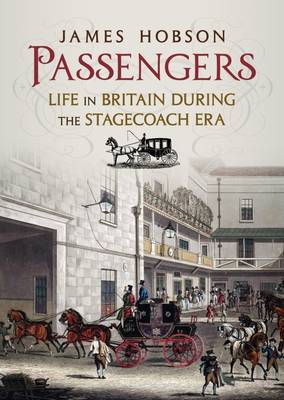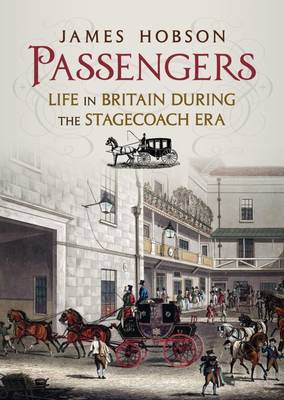
- Afhalen na 1 uur in een winkel met voorraad
- Gratis thuislevering in België vanaf € 30
- Ruim aanbod met 7 miljoen producten
- Afhalen na 1 uur in een winkel met voorraad
- Gratis thuislevering in België vanaf € 30
- Ruim aanbod met 7 miljoen producten
Zoeken
€ 33,95
+ 67 punten
Omschrijving
Passengers is a social history of Britain between 1790 and 1840. This is the period of the Napoleonic War and of rapid technological change and social tension. It was a contradictory age, simultaneously the elegant era of Jane Austen and the inspiration for Charles Dickens's work on poverty and injustice. The book has an initial focus on transport and hospitality, but it is also a wider portrait of this important but neglected period of British history. The author covers all aspects of the period-work, law, technology, finance, politics, poverty and crime are the most prominent. The inn and the stagecoach were some of the few places that the different classes met and coexisted in a country that was stratified and deferential. The poor served the transport and hospitality system, the middle classes used it and the ruling classes profited from it. The life of women is an important part of this book; they worked at levels in the travel and hospitality industries. This is everybody's story, an exposition of real places and real people in a society that was 'on the move, ' in all senses of the phrase.
Specificaties
Betrokkenen
- Auteur(s):
- Uitgeverij:
Inhoud
- Aantal bladzijden:
- 192
- Taal:
- Engels
Eigenschappen
- Productcode (EAN):
- 9781781558225
- Verschijningsdatum:
- 12/08/2021
- Uitvoering:
- Hardcover
- Formaat:
- Genaaid
- Afmetingen:
- 165 mm x 235 mm
- Gewicht:
- 456 g

Alleen bij Standaard Boekhandel
+ 67 punten op je klantenkaart van Standaard Boekhandel
Beoordelingen
We publiceren alleen reviews die voldoen aan de voorwaarden voor reviews. Bekijk onze voorwaarden voor reviews.











